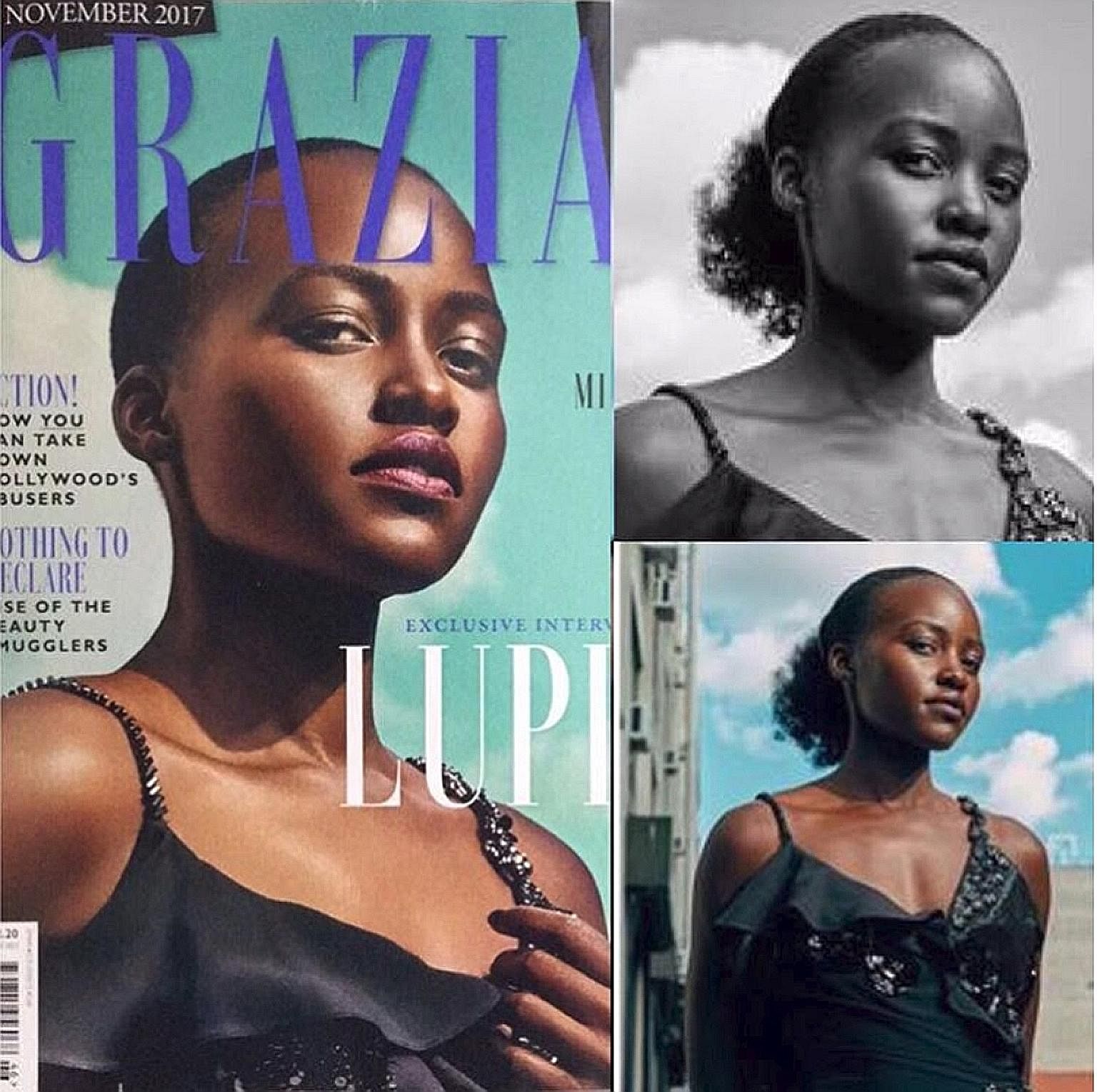NEW YORK • Oscar-winning actress Lupita Nyong'o has spoken over the years about her struggles to learn to love her hair and skin colour.
She was taunted as a young girl for her "night-shaded skin", she has said. She once felt "unbeautiful".
Finally, Nyong'o said she realised that beauty was not a thing she could acquire or change.
"It was something that I just had to be," she said at a Black Women In Hollywood luncheon in 2014. But now, at 34, she has yet again found herself defending that beauty.
On the cover of its issue for this month, the magazine Grazia UK featured an altered image of Nyong'o.
Gone is her mass of curly black hair, held in a thick ponytail at the back of her neck in the original photograph. On Instagram, in a post that was widely shared, she rejected the magazine's use of the image.
"As I have made clear so often in the past with every fibre of my being, I embrace my natural heritage and despite having grown up thinking light skin and straight, silky hair were the standards of beauty, I now know that my dark skin and kinky, coily hair are beautiful too.

"Being featured on the cover of a magazine fulfils me as it is an opportunity to show other dark, kinky-haired people, and particularly our children, that they are beautiful just the way they are.
"I am disappointed that @grazia uk invited me to be on their cover and then edited out and smoothed my hair to fit their notion of what beautiful hair looks like.
"Had I been consulted, I would have explained that I cannot support or condone the omission of what is my native heritage with the intention that they appreciate that there is still a very long way to go to combat the unconscious prejudice against black women's complexion, hair style and texture."
Nyong'o affixed the hashtag #dtmh, the acronym for the song Don't Touch My Hair by Solange Knowles. The London Evening Standard magazine apologised to Knowles last month for removing a significant portion of her hair from an image that appeared on the cover of its edition last month.
In September, hip-hop artist Nicki Minaj called out magazines for altering her hair while not doing the same to women of other races.
"For years, fashion magazines would change my hair for their covers, but allow women of a different race to wear the exact style on the cover," she said on Twitter.
Over the weekend, Grazia magazine issued a statement apologising to Nyong'o, but deflecting blame for the image alteration.
"Grazia is committed to representing diversity throughout its pages and apologises unreservedly to Lupita Nyong'o.
"Grazia magazine would like to make it clear that at no point did we make any editorial request to the photographer for Lupita Nyong'o's hair to be altered on this week's cover, nor did we alter it ourselves. But we apologise unreservedly for not upholding the highest of editorial standards in ensuring that we were aware of all alterations that had been made."
Nyong'o was born in Mexico and grew up in Kenya. She graduated from the Yale School of Drama in 2012 and won an Academy Award for her role as Patsey, a tormented young slave in 2013 movie 12 Years A Slave, her first feature film.
In 2014, she became a face of beauty brand Lancome. Her other credits include the more recent Star Wars films.
NYTIMES
